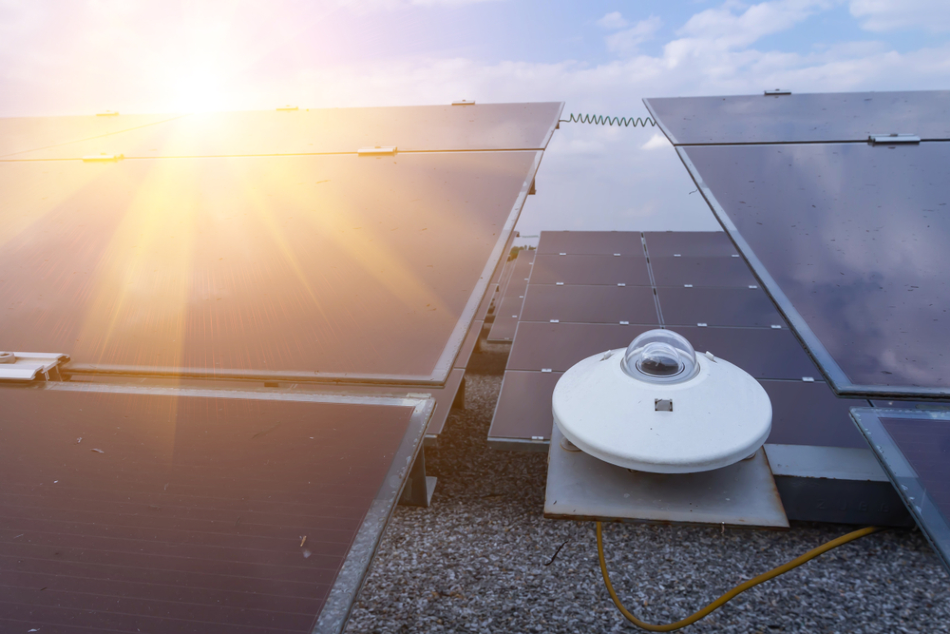
Image Credit: Kampan/Shutterstock.com
Photovoltaics is the process of generating electricity from a light source. Usually, this involves capturing light within a solar panel and using semiconductors to convert this energy into usable electricity. Advancements in photovoltaic technology are becoming increasingly important as governments worldwide look to solar energy, alongside wind power, hydroelectric energy, geothermal power, biomass, and hydrogen as sources of renewable, clean energy to replace their fossil fuel sources.
Around the world, the face of energy is changing, with a focus on converting infrastructure to support larger capacities of power generated from renewable sources and so reduce carbon emissions. Because of this, scientists are innovating ways to improve current technology so that more energy can be generated from these sources.
Improving the Efficiency of Solar Panels
The efficiency of solar panels can be boosted in numerous ways, through enhancing the quality of the photovoltaic material, improving the effectiveness of the electronic circuit, or by improving the light source tracking model. Last year, researchers demonstrated that fuzzy light sensors can be used to increase the accuracy of tracking a light source.
Back in 2018, the journal Web of Conferences recorded the findings of the work that a team from Indonesia presented at the 2017 International Conference on Energy, Environmental and Information System (ICENIS). Below we discuss how the team successfully used sensors to enhance the efficiency of photovoltaic cells, and what this means for the future of the energy industry.
Using the Fuzzy Logic Algorithm
The Indonesian team recognized the potential benefit of programming cells to respond to the direction of the sun’s rays; constantly adjusting their position to capture as much light as possible. Making these adjustments automatically and accurately is one method of enhancing the efficiency of solar cells.
As the sun moves throughout the day stationary cells would only be in the optimal light-capturing position for a short time, meaning that a vast amount of solar energy is not being captured. Equipping solar panels with the ability to adjust themselves to the direction of light throughout the day would have a significant impact on the cell’s energy-generating efficiency.
The team established a system whereby the optimal orientation of the solar cells could be accurately calculated by adding light sensors to each cell. The sensors were used to collect data about each individual cell regarding the exact positions of a light source (sunlight), which was sent to a monitoring station via a wireless network. Each panel had two light sensors installed parallel to each other, and using a fuzzy logic algorithm the data collected by the sensors calculated the direction of the sunlight and made automatic adjustments to the orientation of each panel.
Enhancing Solar Panel Performance with Sensors
The team tested their model and found that it enhanced the performance of the solar panels, helping them to generate more power than they would have if they had remained in their fixed positions. The results indicated that solar panel power efficiency was increased by up to 5.6% by using light sensors. As expected, the results showed that the sensors helped enhance efficiency most when the angle of the light approaching the sensors was coming in at close to 0° or 180°, with 90° being the optimal angle for capturing light energy.
Leading the Way to Future Innovations
By 2050 it is predicted that all countries will have to be using renewable energy sources. Thanks to rising concerns over climate change, fossil fuels are on their way out, and they need to be replaced with energy sources that can produce great quantities of power.
With global energy demands and populations growing, if renewables are going to succeed in taking over as the only energy source, then they need to be more efficient in generating power. Because of this, innovations like the use of sensors to enhance the efficiency of solar panels are likely to be vital to the future of renewable energy.
Sources and Further Reading
Disclaimer: The views expressed here are those of the author expressed in their private capacity and do not necessarily represent the views of AZoM.com Limited T/A AZoNetwork the owner and operator of this website. This disclaimer forms part of the Terms and conditions of use of this website.